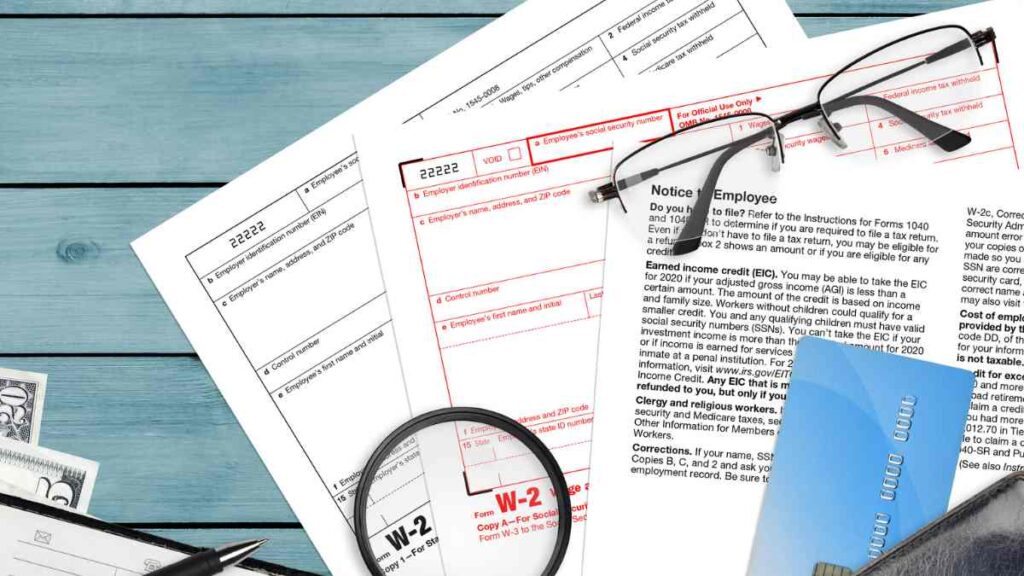The Internal Revenue Service (IRS) sent a crucial alert last July 15, urging taxpayers to be cautious of the “bad advice” circulating on social media about a supposed tax credit. The agency clarified that this information is “misleading” and could lead to significant errors in tax filings.
The IRS highlighted that some social media posts are inaccurately promoting a tax credit allegedly available for self-employed individuals and gig workers during the COVID-19 years. According to these posts, the tax break could be as much as $32,000, a claim the IRS has firmly debunked as false.
IRS Commissioner clarifies the issue
“This is another misleading social media claim that’s fooling well-meaning taxpayers into thinking they’re due a big payday,” stated IRS Commissioner Danny Werfel. “People shouldn’t be misled by outlandish claims they see on social media. Before paying someone to file these claims, taxpayers should consult with a trusted tax professional to see if they meet the very limited eligibility scenarios.”
- Verify Information: Always confirm any tax-related information you come across on social media with a trusted source.
- Consult Professionals: Speak with a trusted tax professional before taking any action based on social media claims.
- Avoid Scams: Be cautious of individuals or services that promise large tax breaks without proper verification.
Staying informed and consulting with professionals can help you avoid costly mistakes during tax season. Don’t let misinformation on social media steer you wrong.
In recent years, certain benefits for sick and family leave have been available to a limited group of taxpayers. Specifically, these benefits applied to self-employed individuals in 2020 and 2021 who had to stop working to care for someone sick with COVID-19 or who were isolated due to the coronavirus.
IRS Concerns Over Dubious Claims
The IRS has noticed an influx of questionable claims where it appears that taxpayers are attempting to claim credits for which they are not eligible. This has led to refunds being delayed and the necessity for taxpayers to provide legitimate documentation to support their claims.
Expert Advice on Filing Taxes
The agency strongly recommends that taxpayers seek professional advice when filing their taxes. Relying on unreliable information found online can lead to errors and complications in the filing process.
Tips for Self-Employed Taxpayers
- Ensure you meet the eligibility criteria for any credits or benefits you claim.
- Maintain thorough documentation to support your claims.
- Consult with a tax professional to avoid misinformation and errors.
By following these guidelines, taxpayers can avoid delays and ensure their claims are processed smoothly.
Scam artists are constantly preying on people’s hopes and exploiting the complexity of the tax system. They often try to convince individuals that there are secret methods to secure a large refund. “All of these scams illustrate the importance of carefully reviewing your tax return for accuracy before filing,” Werfel emphasized in a statement. “It’s crucial to rely on the advice of a trusted tax professional, rather than someone trying to make a quick buck or a questionable source on social media.”
Beware of False Tax Credit Information
The IRS has recently highlighted the so-called “self-employment tax credit” as the latest piece of false information being spread on social media. This misinformation joins other misleading claims about tax breaks, including fuel tax credits and household employment taxes.
Understanding the Risks
“The IRS is noticing similarities between the marketing of this ‘Self-Employment Tax Credit’ and the aggressive promotion of the Employee Retention Credit,” the agency stated. “Both are technical credits that have been misrepresented by some as a way for average taxpayers to receive substantial government payments. In reality, these credits are highly limited and come with a variety of complex requirements that must be met before individuals can qualify.”
